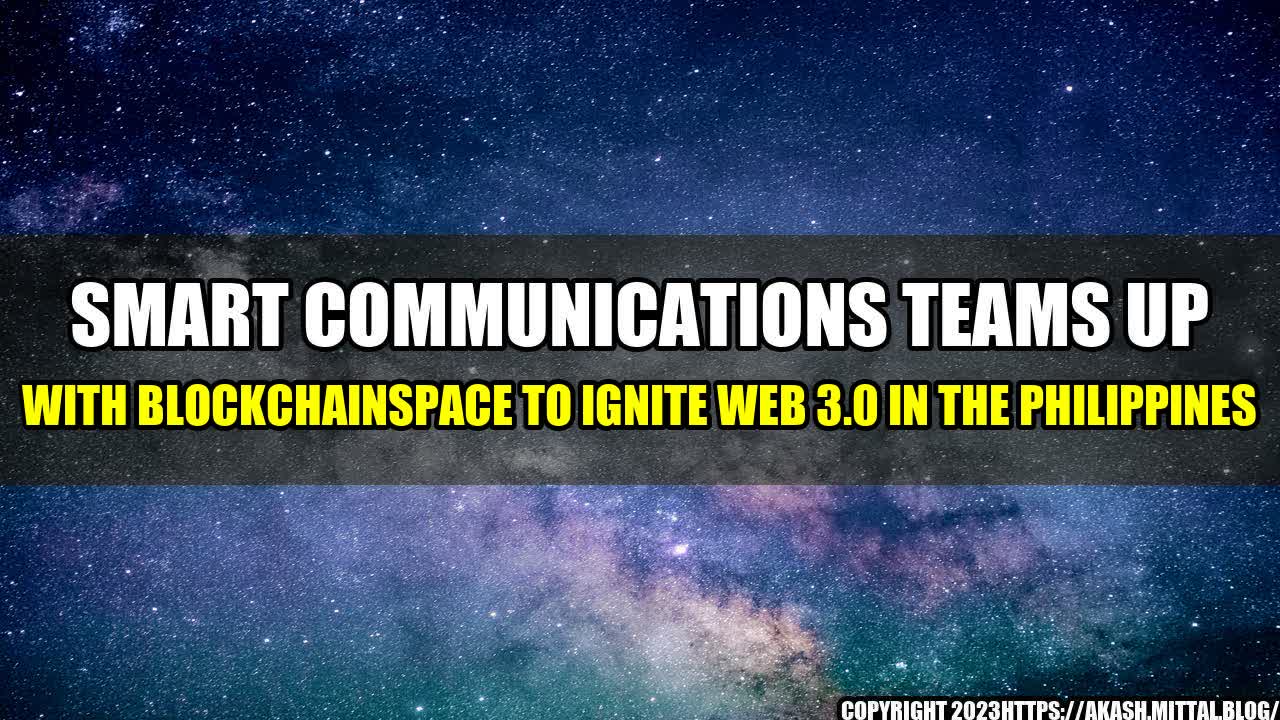The internet has undergone several revolutions in the past few decades, from the static pages of Web 1.0 to the user-generated content of Web 2.0. Now, the world is on the cusp of another revolution: Web 3.0.
Web 3.0, also known as the decentralized web, promises to bring about a more secure, efficient, and open internet by using blockchain technology and decentralization principles. And in the Philippines, Smart Communications is leading the charge in bringing this revolution to the masses.

Smart Communications, one of the largest mobile network operators in the Philippines, has partnered with BlockchainSpace, a blockchain and cryptocurrency hub based in Manila, to promote the adoption of Web 3.0 in the country. The partnership aims to educate Filipinos about the benefits of decentralization and blockchain technology, and to encourage the development of decentralized applications (dapps) that can transform various industries.
"We believe that Web 3.0 will revolutionize the internet and how we interact with it," said Jane J. Basas, senior vice president and head of consumer wireless business at Smart Communications. "Through this partnership with BlockchainSpace, we hope to bring this vision to life and empower Filipinos to be active participants in the new era of the web."
Examples of Web 3.0 in Action
So, what does Web 3.0 look like in practice? Here are some examples:
- Decentralized social networks: Instead of relying on a centralized platform like Facebook or Twitter, Web 3.0 social networks are built on decentralized protocols that allow users to control their own data and identities.
- Supply chain management: Web 3.0 technology can be used to create transparent and secure supply chain networks, where every step of the process is recorded on a blockchain, ensuring greater accountability and efficiency.
- Financial services: Decentralized finance (DeFi) platforms are already disrupting the traditional financial industry, offering faster, cheaper, and more accessible services to millions of people around the world.

Why the Philippines?
The Philippines may not be the first country that comes to mind when you think of blockchain and cryptocurrency adoption, but it is a country with tremendous potential for Web 3.0.
For one, the Philippines has a large population of tech-savvy and mobile-first users who are eager to embrace new technologies. In fact, the country has one of the highest rates of internet and social media usage in the world. Additionally, the Philippines has a thriving entrepreneurial scene, with many startups and SMEs poised to benefit from the decentralization and democratization of various industries.
Moreover, the Philippine government has expressed its support for blockchain technology and its potential to transform the country's economy. In 2018, the Philippine Securities and Exchange Commission (SEC) issued draft rules for regulating initial coin offerings (ICOs) and virtual currency exchanges, and in 2019, the Cagayan Economic Zone Authority (CEZA) launched a fintech hub and regulatory sandbox for blockchain and cryptocurrency startups.
All these factors make the Philippines an ideal hub for Web 3.0 innovation and development, and Smart Communications and BlockchainSpace are at the forefront of this movement.
The Future of the Internet
As Web 3.0 gains traction around the world, it is important for individuals and businesses to understand its potential and take advantage of its benefits. By embracing decentralization and blockchain technology, we can create a more equitable, efficient, and secure internet that benefits everyone.
Smart Communications and BlockchainSpace are leading the way in the Philippines, and their partnership is a testament to the country's potential for Web 3.0 innovation. With their combined resources, expertise, and vision, they are poised to transform various industries and empower Filipinos to be active participants in the new era of the web.

Curated by Team Akash.Mittal.Blog
Share on Twitter Share on LinkedIn